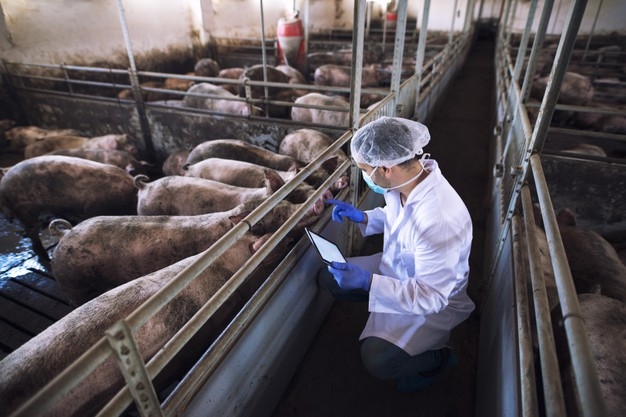Vietnam closer to ASF vaccine launch
 |
| Illustration photo, source:freepik.com |
Deputy Minister of Agriculture and Rural Development Phung Duc Tien last week announced that Vietnam is set to officially launch a commercial vaccine for the disease (ASF) by the end of the third quarter this year.
In March Tien initially looked to the end of the second quarter or the start of the third quarter to begin a commercial vaccine launch.
“The vaccine is capable of protecting 100 per cent of vaccinated pigs. In production conditions, the vaccine has protected around 80 per cent of pigs, which are continuing to be monitored for three and a half months after vaccination. Up to now, there have been five successful trials of the vaccine, with an immune response of 94.7 per cent,” Tien explained in March.
Producing a vaccine for ASF is one of the leading priorities for the agriculture and rural development sector as the disease has caused serious damage for pig-breeding and outbreaks continue to emerge.
Statistics from the Ministry of Agriculture and Rural Development (MARD) showed that from the beginning of this year to the end of May, Vietnam reported 718 outbreaks of ASF in 162 districts across 37 cities and provinces. The number of culled pigs was about 36,000. So far, the accumulated number of culled pigs due to ASF has reached six million, causing damage of around $1.2 billion for husbandry companies and households. It is estimated that the epidemic has impacted the livelihoods of 2.5 million livestock households in Vietnam.
Talking to VIR, a representative of a foreign-invested husbandry company said that it has yet to receive any official information about any ASF vaccine, excluding that announced in the media. It has also yet to receive any sales pitch from the producer, as well as official information about the quality and protection capacity of the vaccine. “We are still waiting for it, but to be honest, I am still concerned about the feasibility of the timeline,” the representative said. “This vaccine will be developed based on the gene from the United States, so the selling price of products may be high, which will make husbandry companies have to consider carefully, and households may have to refuse.”
He is also concerned about the protection capacity of vaccine in the context that several new strains of the ASF virus have been identified. “At our company, we determine that being proactive in implementing biosecurity measures is currently the best solution to prevent the expansion of ASF,” he said.
Currently, Navetco National Veterinary JSC under the MARD is the only facility to study for production of the vaccine for ASF based on international cooperation. The vaccine was developed based on a gene from the US, which has studied the virus for the past decade. In February last year, Vietnam requested the US to transfer genetically-altered samples of the ASF virus it developed to facilitate vaccine production.
Besides that, a number of facilities are required to study a vaccine for ASF. The University of Agriculture started researching a vaccine last March and, thus far, it has developed four vaccines, one of which has shown encouraging results in 13 of the 14 pigs tested.
The Vietnam Academy of Agriculture Sciences’ research teams also created a new vaccine piloted at three pig farms in the northern provinces of Hung Yen, Ha Nam, and Thai Binh. Of the total vaccinated animals, 16 out of 18 sows and all 15 pigs for meat were in healthy condition after two months, with some of the sows giving birth to healthy piglets.
While waiting for an official vaccine and implementing biosecurity measures, the MARD has also assigned the University of Agriculture in collaboration with foreign experts to study and clarify the survival mechanism of pigs in outbreaks. Up to now, after many litters, the studied pigs still have high antibodies to ASF.
What the stars mean:
★ Poor ★ ★ Promising ★★★ Good ★★★★ Very good ★★★★★ Exceptional
Related Contents
Latest News
More News
- Masan Consumer names new deputy CEO to drive foods and beverages growth (February 23, 2026 | 20:52)
- Myriad risks ahead, but ones Vietnam can confront (February 20, 2026 | 15:02)
- Vietnam making the leap into AI and semiconductors (February 20, 2026 | 09:37)
- Funding must be activated for semiconductor success (February 20, 2026 | 09:20)
- Resilience as new benchmark for smarter infrastructure (February 19, 2026 | 20:35)
- A golden time to shine within ASEAN (February 19, 2026 | 20:22)
- Vietnam’s pivotal year for advancing sustainability (February 19, 2026 | 08:44)
- Strengthening the core role of industry and trade (February 19, 2026 | 08:35)
- Future orientations for healthcare improvements (February 19, 2026 | 08:29)
- Infrastructure orientations suitable for a new chapter (February 19, 2026 | 08:15)

 Tag:
Tag:


















 Mobile Version
Mobile Version